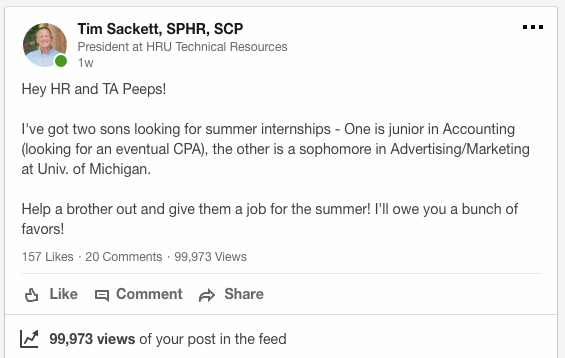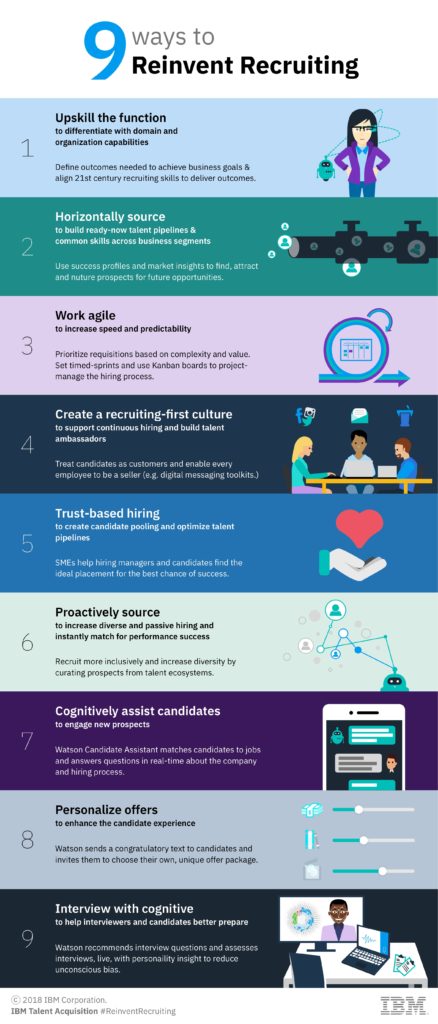This week on The Weekly Dose I review the Recruiter rating technology, Great Recruiters! Great Recruiters is not a yelp-type rating site type of technology. There are some on the market that do that now, but just like Yelp/TripAdvisor/etc. you run into problems with a free market unsolicited feedback sites.
Great Recruiters looked to take what we all want as Talent Acquisition Leaders and make it super simple and fast to gather data about recruiter performance from those who are actually being serviced by that recruiter. Not only does Great Recruiters measure recruiter performance, but it also measures your candidate experience in a real, timely way.
The technology is built to use with any sized recruiting team in virtually any type of recruiting – Corporate, staffing, RPO, you name it. If you have a team of recruiters or one recruiter, you can get feedback instantly from candidates on how your recruiters are doing. Great Recruiters allows you to gather recruiter insights from known candidates (candidates you know the recruiter is working with) and also gives each recruiter a unique url to gather feedback more broadly.
What I like about Great Recruiters:
– Recruiting leaders get a dashboard of their entire team with easy access to all the feedback on each recruiter. In fact, both the TA Leader and the Recruiter get an instant notification when new feedback arrives.
– Great Recruiters gathers both solicited and unsolicited feedback. The first one is what you think, it’s the one-to-one candidate to recruiter relationship. The recruiter works with a candidate, you can easily see that in your ATS, and a survey is sent out to the candidate. The technology also allows you to gather unsolicited feedback as well through a unique url. Maybe you have a recruiter at a career fair and you want to measure that experience.
– Great Recruiters measures five key traits on each recruiter: Are your recruiters Genuine, Responsive, Experienced, an Advisor, and Transparent. 1 to 5 scale, 5 being the best. If your recruiter averages a certain level they can obtain a Great Recruiter rating badge to use on their social profiles.
– There is also a box on each survey for freeform comments, and the data shows that roughly 60% of candidates will add comments. Plus, it also asks each candidate if they have anyone who they would like to refer to the recruiter, with the hope being a great experience will lead to more referrals.
– Great Recruiters does one more really cool thing. Within the dashboard which each recruiter has access to, for their own data, they also have access to a “Knowledgebase” which is a learning tool where your recruiters can capture their best practices and share them within the team.
I feel in love with this technology because I don’t know of one Talent Acquisition leader that is responsible for a team of recruiters who wouldn’t want to use this immediately! It’s the ultimate recruiter performance/feedback tool, that will drive better candidate experience. Plus, it’s a Detroit-based team that put it together!
Clearly, if you run a team of recruiters, let’s say 10+, this is something you need to demo. If you run teams of recruiters at 100+, I would demo and implement as soon as possible, because here’s what I know. About 10% of those recruiters on big teams are just cruising and your managers have no real data to turn them over. This tech will drive recruiter behavior and performance in a way you don’t have currently.
—————————————————————————-
The Weekly Dose – is a weekly series here at The Project to educate and inform everyone who stops by on a daily/weekly basis on some great recruiting and sourcing technologies that are on the market. None of the companies who I highlight are paying me for this promotion. There are so many really cool things going on in the tech space and I wanted to educate myself and share what I find. If you want to be on The Weekly Dose – just send me a note – timsackett@comcast.net


